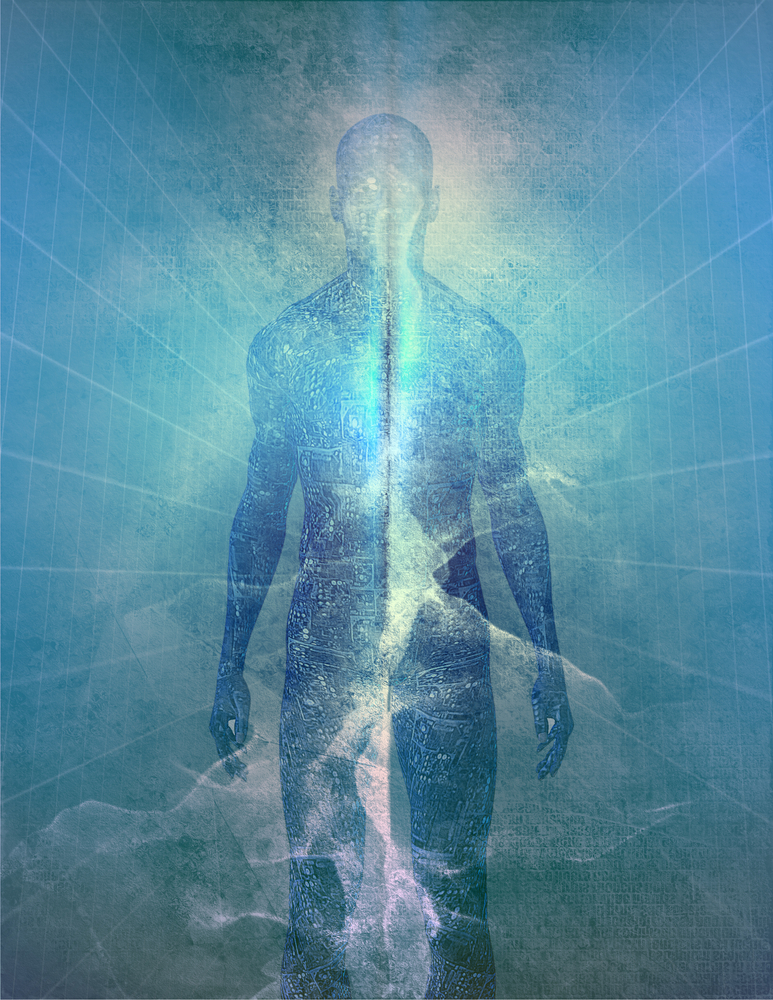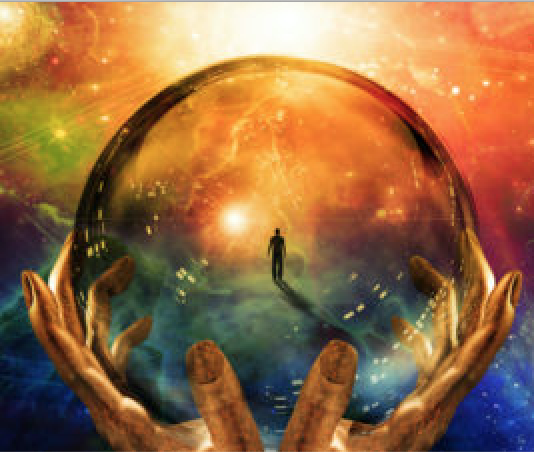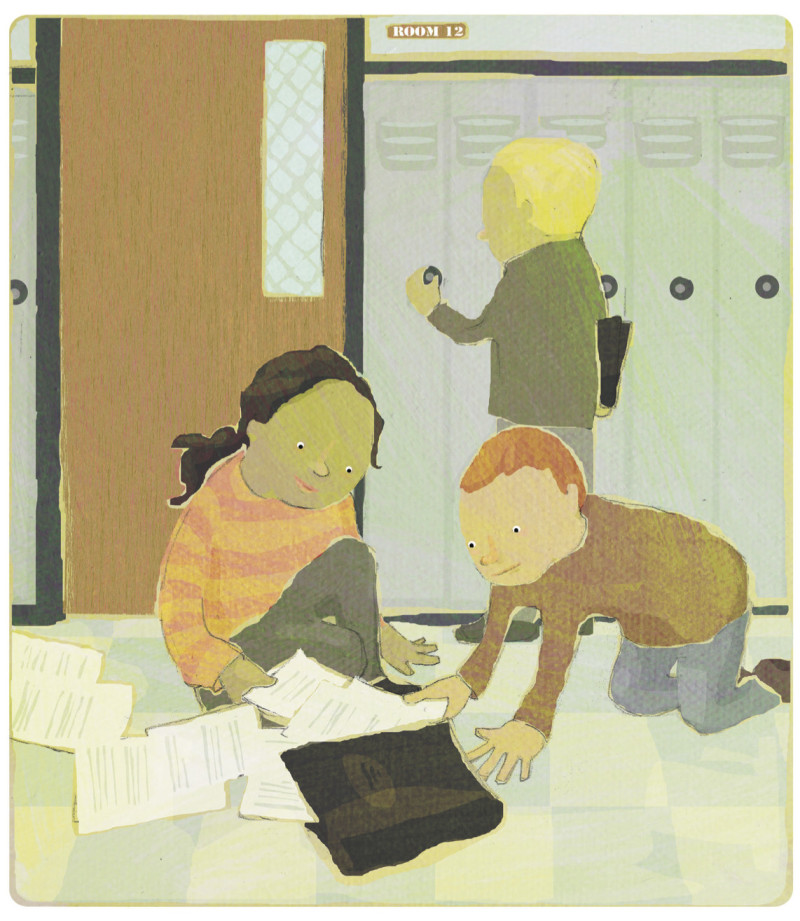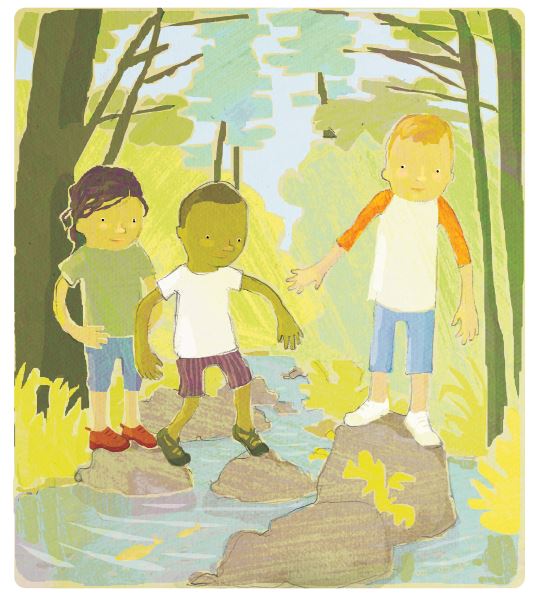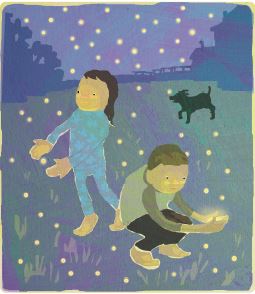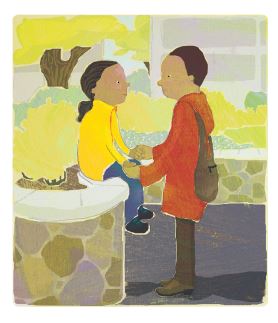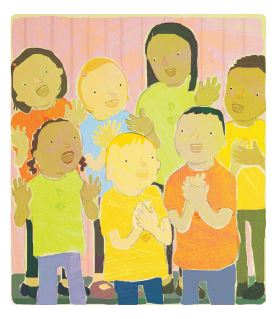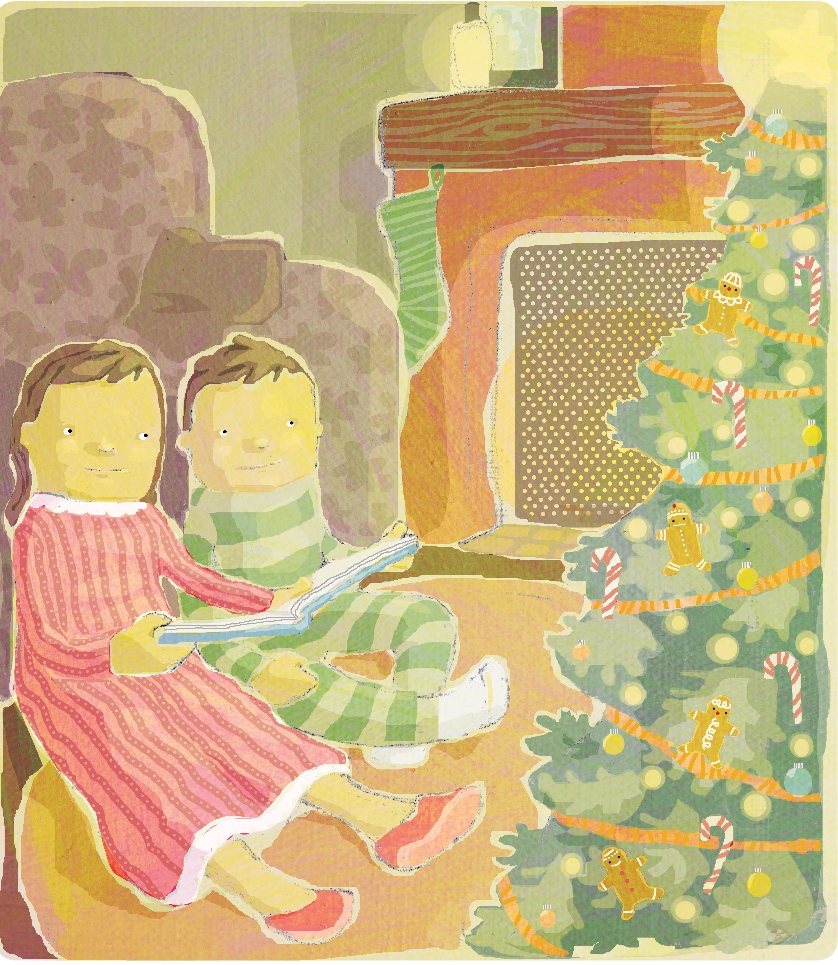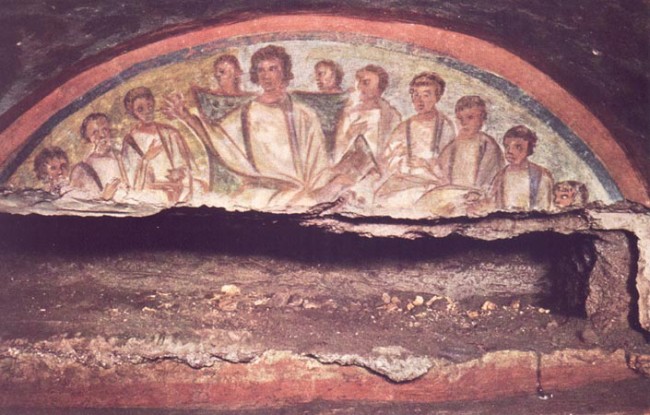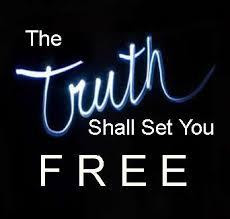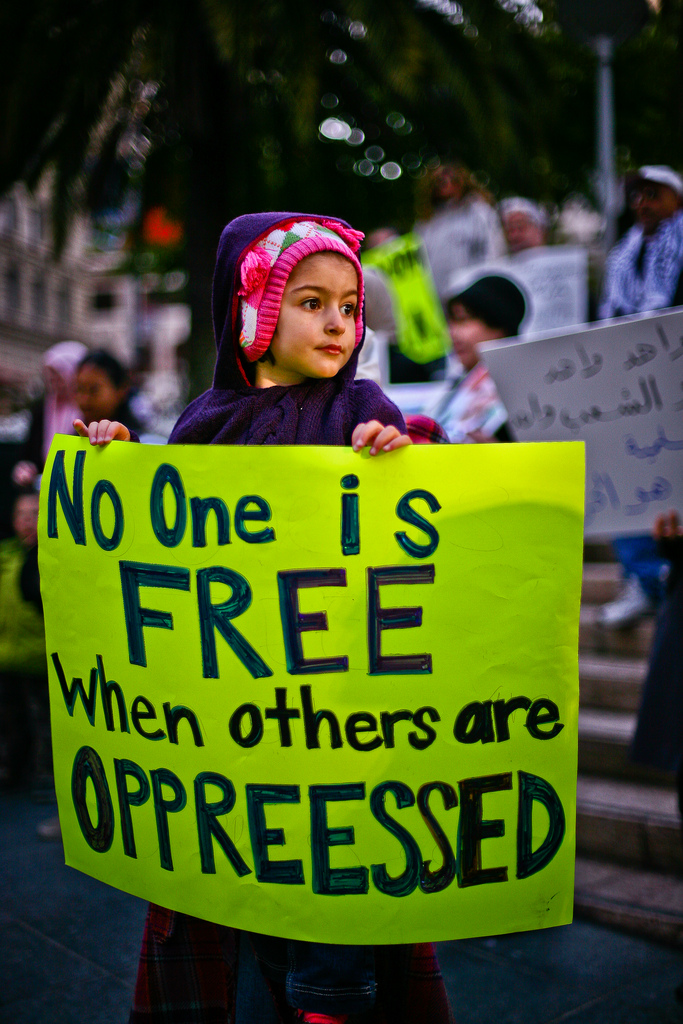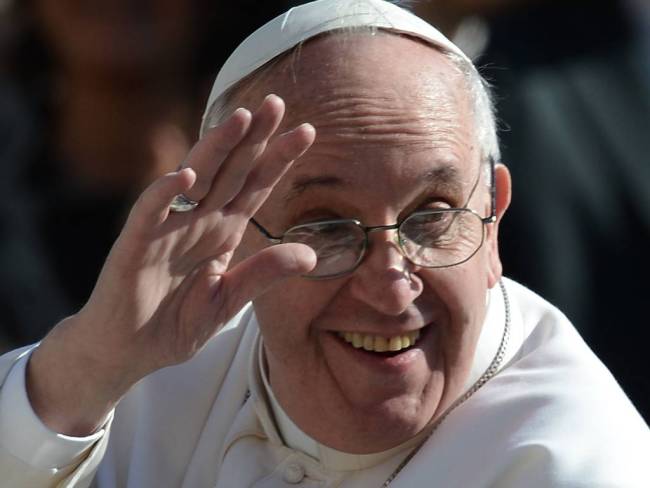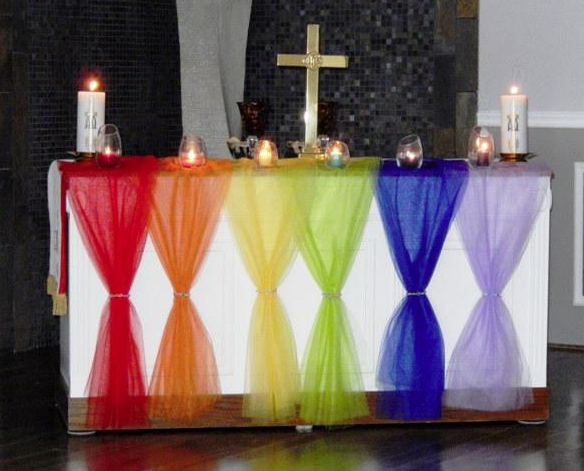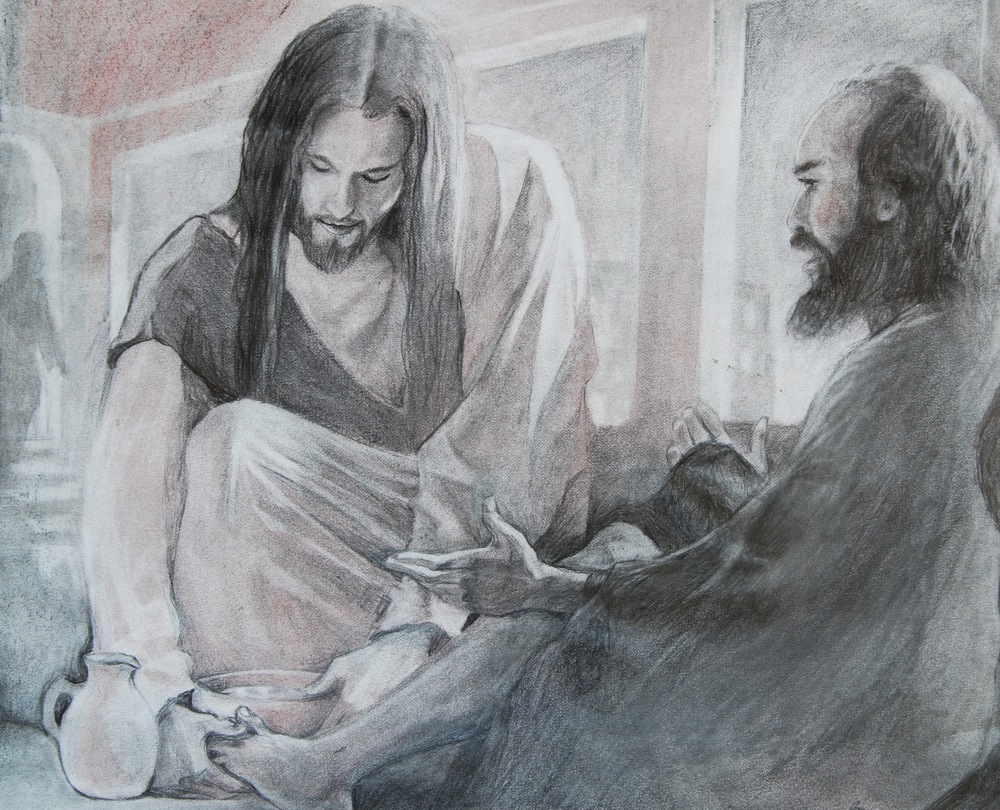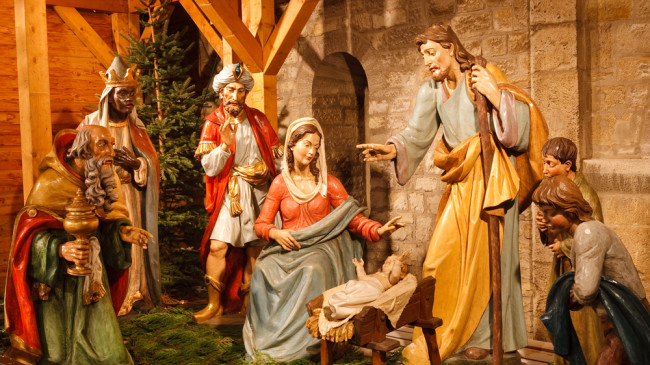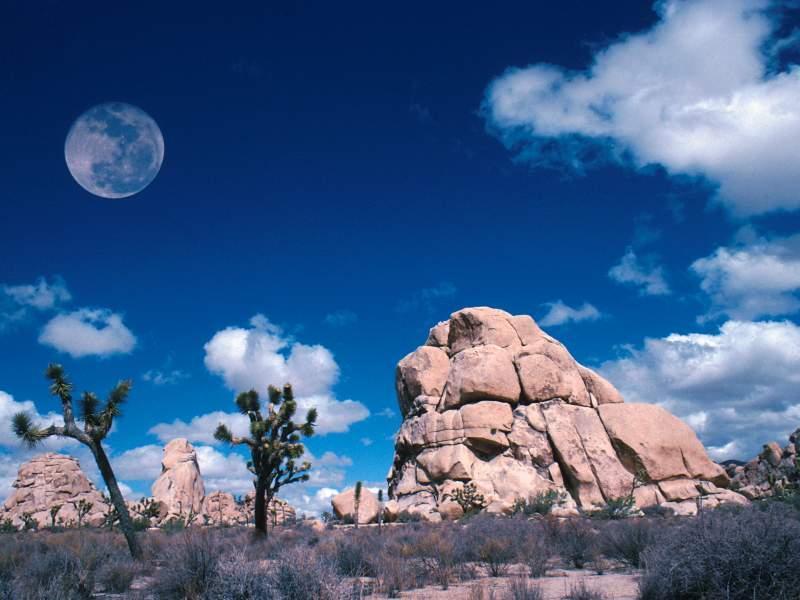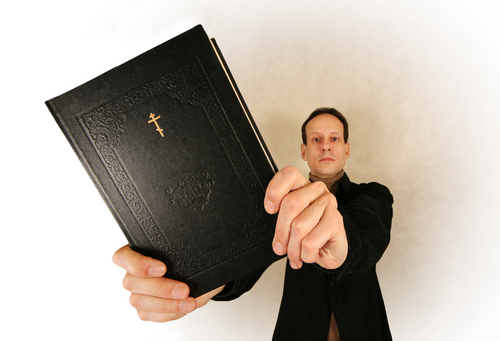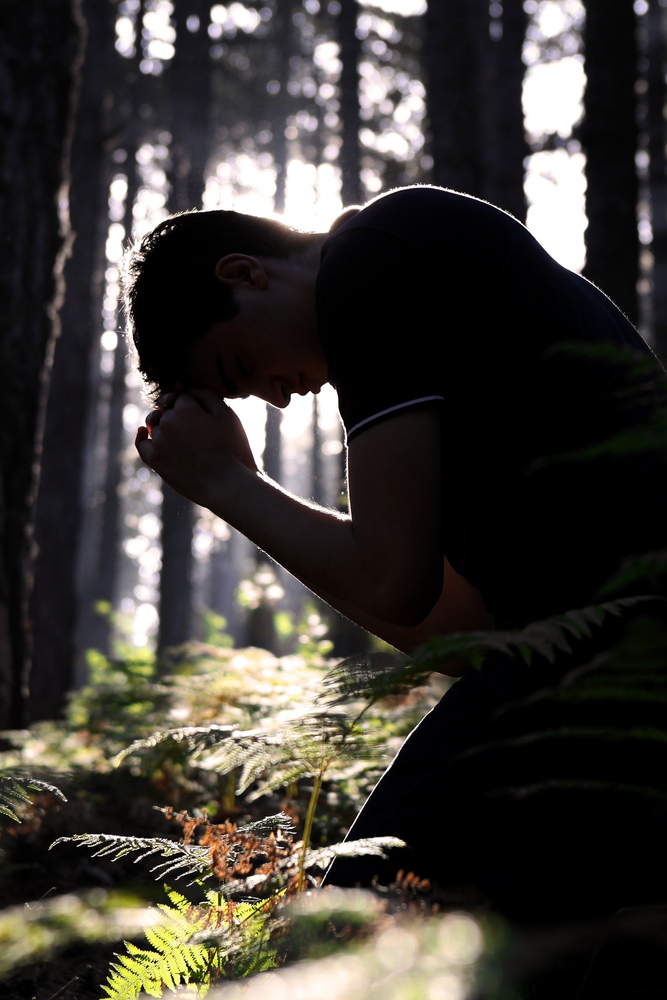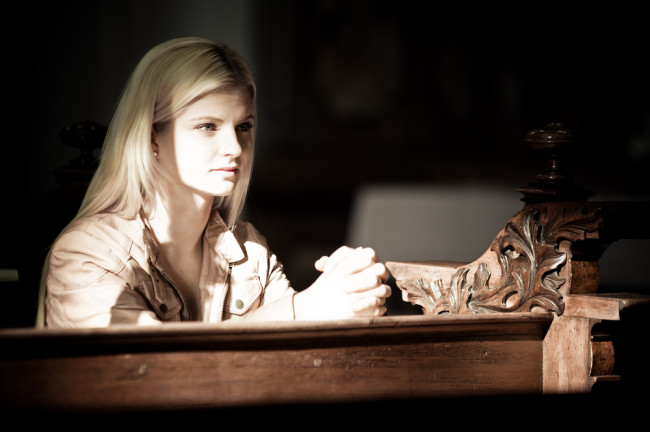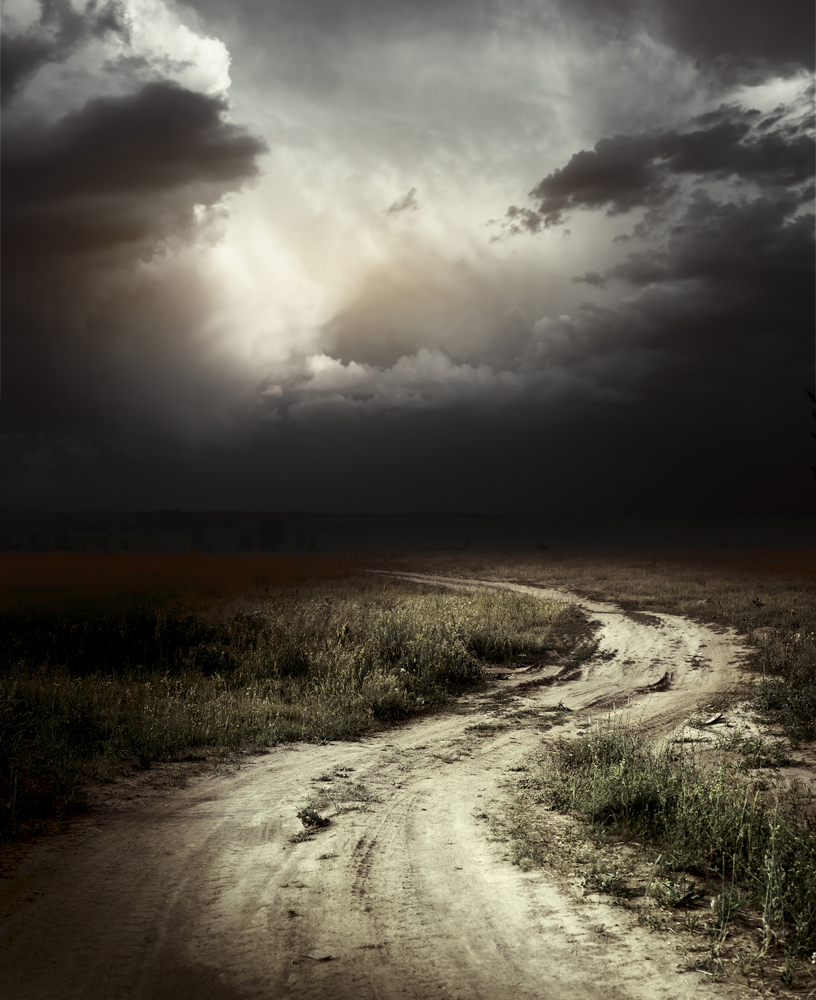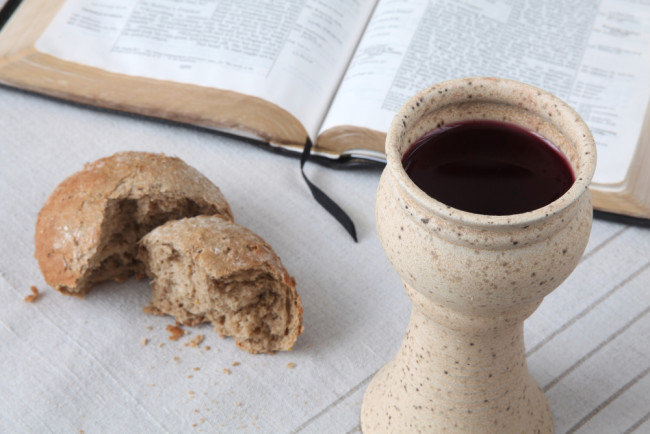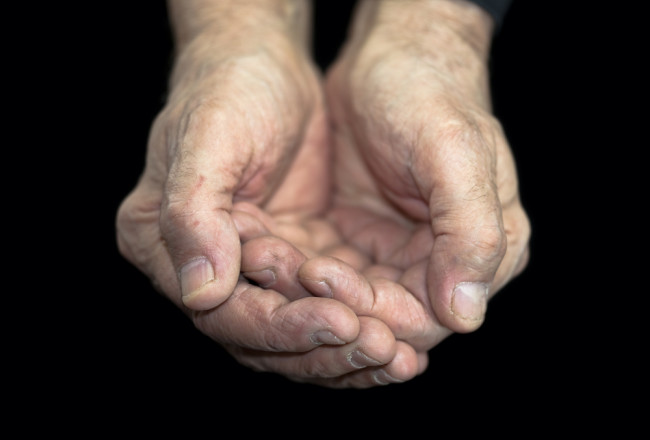In Romans 7:15, the Apostle Paul wrote, "For that which I do, I allow not: for what I would, that I do not; but what I hate, that do I." Many people have pondered over these verses, but everyone who has tried to break a bad habit knows exactly what he's talking about. There seems to be a part of us that knows what we should do, but that part just gets swept away when making decisions in our everyday lives. Why do these contradictions exist within ourselves? The psychology of Carl G. Jung provides some answers.
Some people are highly devotional because it is scary having one's paradigm shattered. This is to be exposed to the chaos of one’s own mind (the devil!). It is much easier to cling to the established artifacts of one’s own thinking then to fall into the pit of chaos. Most people would rather die than admit that the belief system/paradigm that they have carried most or all their life is wrong in spite of proof of error time and time again.
Part 2 in Series: What Makes A Christian?
It is amazing how often we fail a most basic mark of the faith. It is a downright scandal how rarely it is preached. It's questionable how directly our religious and moral practices stem from it. Yet if we believe the direct words of Jesus Himself--you know, God--the very ability of others to recognize our Christian identity is dependent on how we follow this. We gather in churches. We have elaborate worship and praise. And yet we barely give lip service to the first and foremost of the commandments. When we do, it is often to give exceptions--No, Jesus didn't really mean that. . . I'm talking about the Greatest Commandment--love God and love neighbor. Abundantly.
Willpower is our willingness combined with our power, applied with concentration and determination. Applying our willpower to achieve goals is really a discovery of the divine power and guidance that lies within all creation. We discover that willingness opens the gate to infinite possibilities.
>We all have moments when we have to make tough decisions quickly, and sometimes the way is not clear. How will we recognize the highest good when split-second decisions are needed? And how do we prepare children for the inevitable difficult decisions they will face? The answer to both questions is practice. We can’t expect to understand inner guidance in a crisis if we haven’t listened for guidance any other time in our lives. Every day presents opportunities to feel for the right direction. Every decision we make should be made with soul intuition and not just mental reasoning. Children can learn to feel for inner guidance and use that understanding in all life’s challenges. Your true self is a spiritual being housed in a human being. If we can access the voice of our true selves, the guidance we are looking for will always be available.
Deep within our hearts, we all long for an expanded sense of self. We long to feel oneness with the universe, with spirit in all things, and with the infinite spirit that created everything that is. Each time we experience a sense of connection or a hint of freedom from our ego self-definition, we become more aware of the Sacred that is always in us and around us. Jesus may have called it the “Kingdom of God.” Some scholars believe, however, that “Queendom” or “Sacred Unity” is a more accurate translation of Jesus’ words when he spoke about this realm of God which is always available to each of us. Children naturally look for how they are a part of the world around them. They notice sameness and feel oneness more readily than adults who have been gradually trained to see only differences and separation. As we grow in our awareness, we learn that there is nowhere we can go and be apart from the constant, unchanging presence of God. We are never truly separate from anyone or anything in the universe. All that we do affects the world and everyone in it, like a ripple in a pond.
Being truthful puts us in harmony with our spiritual self and is an expression of our divine nature. There are many different kinds of truth, but being truthful is primarily about being conscious of our motivations and expressing that truth in the way we live and treat others, as well as how we speak. Why do we say what we say? Are we sharing the truth about who we are?
When we exclude others, we refuse to relate to realities different than our own, and we keep our experience defined in a way that is comfortable and familiar. If we want children to be inclusive, we have to help them redefine their experiences in a broader way. For instance, if older children exclude a younger child from a ball game because she can’t catch the ball, we can guide them to give her a special job that makes her feel part of the game. Finding a way to include her will expand their limited thinking. Scolding them for excluding her will most likely make them resentful, which leads to closing the heart. Accepting and coping with outward differences is an important step toward opening the heart to others. But to really include others in our reality, we must understand that despite apparent differences, there is only one self, one spirit, and one true reality, underlying all that is. The more children experience their own spiritual nature, the more they will recognize the one spirit in all.
Download the PDF of A Joyful Path, Year One, Lesson #34 - "Experiencing God as Light" right into your digital device. God can be experienced as light, visible to the physical eyes and as a universal inner reality.
In this article, I would like to point out 3 crucial problems that arise when one begins with “plain truths” about the book rather than the Christ, the Logos, the “structuring principle of reality.” (John 1:1–5)
From the Festive Worship collection
Do not let the Christian doctrine of the Trinity alienate you from the oneness of God; for God is both the many and the one.
From the Celebrating Mystery collection
Until we discern the riches of the other tradition, any union will simply be a matter of absorption. Uniting two traditions can create a space where a third and more life- giving form of spirituality can emerge.
Homecoming after a splendid summer respite. Readings Proverbs 1:20-23; Ephesians 4:11-13 and John 8:30-32. I am indebted to Peter Rollins for his excellent insights into the need for church to be a place where we consult our suffering.
We know what to do. The Universal Declaration of Human Rights begins: “Whereas the peoples of the United Nations have in the Charter reaffirmed their faith in fundamental human rights, in the dignity and worth of the human person and in the equal rights of men and women and have determined to promote social progress and better standards of life in larger freedom.” Unitarian Universalists claim the “inherent worth and dignity of all humanity.” Christians claim the Apostle Paul’s ecstatic revelation that “You are no longer Jew or Greek, no longer slave or freeborn, no longer ‘male and female.’ Instead you all have the same status in the service of God’s anointed Jesus.” Leviticus 19:18 says, “Love your neighbor as yourself.” Jesus said, “Love your enemies.”
“LAUDATO SI’, mi’ Signore” – “Praise be to you, my Lord”. In the words of this beautiful canticle, Saint Francis of Assisi reminds us that our common home is like a sister with whom we share our life and a beautiful mother who opens her arms to embrace us. “Praise be to you, my Lord, through our Sister, Mother Earth, who sustains and governs us, and who produces various fruit with colored flowers and herbs”.
From the Celebrating Mystery collection
Our senses and our use of them are part of God's creation. To attempt to deny our senses is as much an insult to God as is the misuse of them.
A majority of American voters say they support a Supreme Court decision to allow same-sex couples the constitutional right to marry, but the issue remains far from settled among socially conservative religious communities that have repeatedly proclaimed biblical support for human injustice.
Jesus called on people to change. Not just a little, but dramatically. The ‘kingdom of God’ is the term Jesus used to express his vision of a profound transformation of human beings and human institutions—social, political, economic and religious—to fully express the character and nature of God—a God of love. To accomplish this vision, Jesus worked toward the creation of a new kind of community dedicated to values of compassion, generosity, peace, and justice. He was creating a movement for change, a people engaged in a vast conspiracy of love.
What can we learn from the Christmas story? I believe that just as Jesus seemed to be aware of the Divine Spark (or Christ) presence within him, which allowed him to love almost unreservedly and break boundaries, so too we are invited to see this Divine Spark within ourselves. God is literally with us. And isn't this what we need in today's world, where we see atrocities and tragedies such as the ones I listed above? If each of us were to acknowledge our inner divinity, and then recognize our neighbour's inner divinity - regardless of their religious beliefs or non-beliefs - would we then see larger stepping stones toward global peace?
The church as we know it came about when one group of believers was opposed by a dissenting group. Then it became necessary for each group to define their concepts of Christianity and to label all others heretics.
From the Boundless Life collection
In nature as in Jesus, All life is truly one, But we divide Christ's mantle And drown Creation's song,
We come to the desert at least as much for what is not here as much as for what is. Monastics of every religion are drawn to it. Moses encountered God in a bush on a desert mountain. The first theologians of Christianity were known as the Desert Fathers. In wilderness they prayed, meditated, contemplated – uncluttering their hearts and minds in an uncluttered space. Mohammed went to a desert cave and there he waited until the Angel Gabriel dictated the Koran to him. Around the same time, Buddhist monks retreated to the mountainous deserts of Central Asia to meditate.
I think Christian missionaries should live among the people exhibiting their Christianity in their daily lives. If the people see something in their lives that is missing in their own lives they will ask about it, which gives the missionary permission to tell them about their faith.
For Christians grace is God’s gift of pardon. According to William Barclay the Greek word for grace was originally a military term. When an emperor came to the throne or celebrated a birthday, he would give his troops a donatirim (donation), which was a free gift that they had not earned; it was given out of the goodness of the emperor’s heart. This idea was picked up by the Christian scripture writers when they wrote about the grace of God. Grace is something that is unearned and undeserved – unmerited pardon.
I think we need some method of communicating with God and prayer is the logical answer. But prayer in which we stop everything we are doing, get down on our knees, fold our hands and pray is not my idea of prayer. I think we should try to communicate with God any time we have a second to think about God or ask God to be with a loved one or friend, or share anything in our life with God. While driving, when watching TV, while on the lake alone, working in the garden, any of those times and many more, we should take a moment to commune (talk, whatever word you want to use) with God. It may be that those moments are more for us than for God, but I like to think that God listens and cares. I admit that I get awfully frustrated when I feel God is not listening because my petitions are not immediately answered in the way that I have requested. I know God’s answer may be “no,” but that is difficult to swallow.
Can we actually believe that because Eve persuaded Adam to eat a forbidden apple the entire human race is doomed to hell? Can we truly believe that for several thousand years there was no chance for any human to be saved, even though none of them had anything to do with Adam and Eve’s disobedience in the Garden? Isn’t it ludicrous that a child born today is doomed because Adam and Eve disobeyed God? That creation/damnation scheme sounds more like devil-worship than God-worship.
When it comes to the existence of the devil, people normally have one of two reactions: they dismiss the devil and scoff at the idea that there is such an entity, or they exalt the devil, and attribute far more to him (or it) than is deserved. In a recent Gallup poll, 70% of Americans believe in the devil. Half of those surveyed believe that he (this evil force is most often referred to in masculine terms) is a personal force, while the other half believes he is an impersonal force. Let us see what the Bible says about Satan, the devil and the evil one.
The central focus for Christian liturgy is the ritual Eucharist. Traditionally Eucharist (which means “thanksgiving”) has reenacted the last meal Jesus ate with his followers before the blood sacrifice of his execution at the hands of the Romans, but with the dogmatic interpretation that Jesus died to save sinners from hell in the next life. Twenty-first century progressive Christians are concerned more with living a life of justice-compassion here and now (as Jesus taught) than reconciling with a god that demands blood sacrifice in exchange for a carefree afterlife. What is required is to act with justice-compassion in radical abandonment of self-interest. Suppose that instead of terrorizing ourselves with the Advent of violent judgment, we were to celebrate the Advent of the Christ consciousness; instead of a Eucharist mourning the personal holocaust of Jesus’s death, a Eucharist of Ordination, in which we recommit ourselves to the great work of distributive justice-compassion? We have the power, at any moment, to transform the way we live our lives. We can choose not to participate in the retributive system of imperial war and systemic injustice. We can step into the kind of ongoing parallel universe of God’s justice-compassion at any moment. We can change our consciousness, change the paradigm in which we live, whenever we have the will to do so. Jesus is not coming again. We are; and when the rare opportunity presents itself, we can break the alabaster jar in remembrance of her.
Bonhoeffer believed that in the future a religionless Christianity—stripped of its religious garments—would be limited to two things: prayer and action.3 He believed that through these two acts Christians would learn to see the world from a new perspective, with the eyes of those at the bottom of society—the people that Matthew called “the least of these.” For Bonhoeffer, prayer—especially intercessory prayer—becomes important because it creates a powerful sense of empathy and solidarity with the people one brings before God. This, in turn, motivates one to engage in “righteous” action—the seeking of justice in human society.
The dry bones raised by Ezekiel are a metaphor for those who died in the service of God’s justice: those who died working to restore God’s distributive justice-compassion to God’s Earth, and who themselves never saw the transformation. The army of dry bones is an army exiled from justice. Fairness demands that if Jesus was resurrected into an Earth transformed into God’s realm of justice-compassion, then all the other martyrs who died too soon should also be raised with him. “But in fact,” Paul writes in 1 Corinthians 15:20, “Christ has been raised from the dead, the first fruits of those who have died.” It is the Christ – the transformed and transfigured post-Easter Jesus – who has started that general resurrection, which restores justice-compassion to a transformed Earth. The transformation has begun with Jesus, and continues with you and me – IF we sign on to the program.

